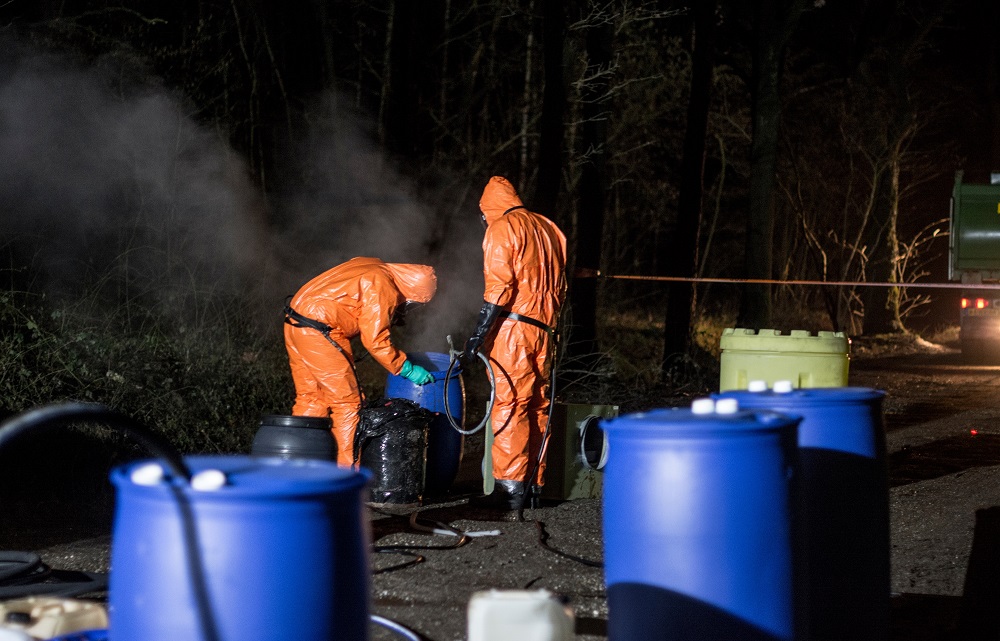Will an ecstasy pill soon be as legal as a beer?
Voices from society to review the Dutch ecstasy policy are getting louder and louder. There are even concrete proposals to introduce a so-called ‘X-shop’. But is legalizing the famous party drug really such a good idea?

The national cannabis experiment is barely underway when appeals are already made for another change in national drug policy. Subject of discussion this time: the popular drug ecstasy. The debate was revived in the early 2020s when a Drug Manifesto (Dutch only) called for a regulated drugs market.
According to the authors of the manifesto (including two D66 MPs), the current fight against drugs—and the crimes that are inextricably linked to it—is one that cannot be won with repression alone. Regulations would therefore offer a solution.
Last October, a proposal was made as to how these regulations should be shaped. A think tank consisting of various experts—ranging from lawyers to neuroscientists—published a report (Dutch only) that specifically examines the policy regarding MDMA (the active ingredient in ecstasy). The conclusion: the introduction of an “X-shop” of which both production and sales are regulated is the best strategy at this moment.
Quality control
With the report, the experts involved want to stimulate thinking about an effective MDMA policy, which will benefit both the user and society. One of the questions taken into account is whether regulations of ecstasy in the form of an X-shop contribute to the users’ health or that it actually causes them more damage.
Dike van de Mheen, the Chair of Tranzo, the scientific center for care and well-being at Tilburg University, believes it is advisable to first wait for the results of the cannabis experiment. At the same time, she considers regulating the stimulant to be beneficial. “When people think of regulating drugs, they quickly think of decontrolling them completely, without any form of supervision. This is a misunderstanding since regulations mean allowing production and trade subject to conditions.”

It is precisely because of these additional conditions and rules that Van de Mheen thinks that regulations for MDMA are a useful step in the long run. “The rare accidents that happen with ecstasy are often the result of ecstasy pills with doses that are too high, which in turn are caused by fierce competition between the illegal drug producers.”
By subjecting the production and trade of ecstasy to standards as a government, it gains control over the quality of the pills. In this way, users run fewer risks.
“By the way, it’s always nice to know what’s in the pills, which goes for any product you buy,” Van de Mheen states. “Indeed, having your drugs tested is already possible at several places in the country, but it’s by no means possible everywhere. Moreover, such a test is done after the fact and you have to be alert enough to have your pill tested. In an X-shop your drugs are tested beforehand and you immediately receive a leaflet with information.”
A common criticism of regulating ecstasy is that it lowers the threshold: it is more readily available, which increases demand and use, which, in turn, results in more damage to health. Van de Mheen: “I don’t expect that regulations will open up a new market, because a pill is already very easy to obtain. The people who are not interested now will not be interested later. There will probably be a small effect, but that’s worth the health gain as a result of the quality control.”
Alcohol and Tobacco
In regulating ecstasy, the focus is on harm reduction, which means that the damage to the user and to society must be minimized. This means that the harmfulness of ecstasy is not denied but rather recognized; after all, drugs are not innocent.
Yet MDMA is less dangerous than is often thought. For example, in 2009 the RIVM conducted research (Dutch only) into the harmfulness of various drugs, which showed that ecstasy is one of the least harmful drugs. All types of damage were taken into account: toxicity, addiction potential, and social damage. It is striking that alcohol and tobacco score very high on these three criteria; after heroin and crack, they are relatively the most harmful.
“There are no indications that ecstasy has serious physical or psychological effects,” Van de Mheen says. “When saying this, I must also note that we are not well informed about its long-term effects yet. Because it is a relatively young drug, we have not yet been able to follow a generation for a long time.”
“Criminals do not live on a different planet, they are part of society”
Also, according to Van de Mheen, MDMA is hardly addictive, unlike alcohol and tobacco. “You speak of an addiction if you can no longer do without the drug or if you want more and more of it. This does not apply to ecstasy. Basically, you can do it for a while and then quit. No dependence occurs.”
So from a public health perspective, it is at least remarkable that ecstasy is illegal while more harmful substances like alcohol and tobacco are not. Add to this the considerable social damage caused by alcohol and tobacco—consider additional healthcare costs, traffic accidents, or an increase in violent crime—and it becomes clear that current policy lacks logic.
Organized crime
Ecstasy may cause little inconvenience or traffic casualties, but because it is illegal, there is another major social problem attached to it, namely the organized crime behind it. Besides causing environmental damage, it also has a dangerous undermining effect.
“The income generated by ecstasy crime can lead to criminals building up positions of power,” says Toine Spapens, criminologist at Tilburg University. “They do this by investing in real estate and businesses, or by playing the criminal benefactor.”
“In addition, criminals need facilitators—from car rentals to lawyers—which means that all kinds of other sectors also have to deal with them. So criminals do not live on a different planet, but are part of society.”

Whether this crime can be reduced by regulating ecstasy, Spapens is not so sure. “Since the lion’s share of the ecstasy produced in the Netherlands is exported, regulations will hardly reduce the crime problem.”
Despite the fact that the Dutch demand for illegal pills will decrease, the foreign demand will continue to exist. As a result, the ecstasy market remains largely intact.
Also, according to Spapens, it remains to be seen to what extent the Dutch need for illegal pills will decrease. “Because of the potentially harmful health effects of ecstasy, it can never be completely decontrolled. This results in certain niches always remaining for criminals.”
“For example, if you start placing requirements on the number of pills or the dosage of MDMA, then—provided consumers want more and more powerful pills—there will always be a market for illegal producers and suppliers.” The same logic applies to the price of an ecstasy pill: you cannot tax it too much, or you will be out-competed by criminals.
Image damage
An additional risk associated with regulating ecstasy is that the Netherlands will suffer serious damage to its image on the international stage. Unlike with cannabis, there is no broader international movement towards regulations; MDMA is still strictly forbidden abroad. A change in Dutch policy would therefore go against the grain of other countries.
“A state is less and less of an island,” Spapens said. “Whether you like it or not, you will have to take into account how things are considered abroad, quite apart from the international treaties to which the Netherlands has conformed.” By this, Spapens is referring to the UN treaties signed by the Netherlands that form the basis for its repressive drug policy.
Regulations can have serious repercussions for the international trade position of the Netherlands. For example, in the late 1990s the Netherlands was threatened with being blacklisted by the United States. This would make it more difficult for Dutch companies to do business in that country. “It was not without reason that the repression was strongly intensified at the time,” notes Spapens.
Because the Netherlands lacks international muscle, it seems that sufficient support for regulating ecstasy must first be created worldwide. Whether this will happen through a large global movement or because one or two powerful countries are driving it, that remains to be seen.
Until then it is important to keep the pressure on and prevent (ecstasy) crime from developing into a power factor. According to Spapens, it is like mowing the lawn: you know it will keep growing, but if you want to keep the garden manageable, you have to mow.






